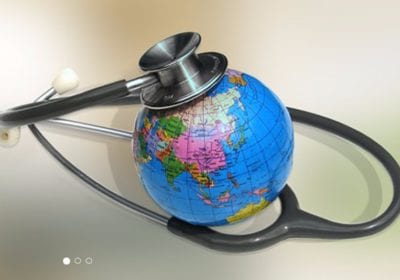
Nigerians spent about $7.43m (about N8.3bn) on foreign healthcare-related services between June 2022 and June 2023, findings by The PUNCH have shown.
The figure was obtained from the Balance of Payments database of the Central Bank of Nigeria.
Our correspondent observed that the amount spent on foreign healthcare-related services in the second half of last year (June-December 2022) was more than that spent in the first half of this year (January to June 2023).
While the figure for the second half of last year was $4.3m, that of the first half of this year was $3.13m.
A breakdown of the report showed that in 2022 medical tourism gulped $0.42m in June 2022, $0.46m in July, $0.80m in August, $0.44m in September; $0.62m in October, and $0.78m each for November and December.
For this year, $0.34m was spent in January; $0.32m in February; $0.38m in March; $0.50m in April; $1.28m in May; and $0.31m in June.
Many Nigerian leaders and politicians travel abroad to seek medical treatment in the face of crises in the nation’s health sector, poor primary health care system, poor facilities, brain drain, and disease outbreaks, among others.
Former President Muhammadu Buhari repeatedly travelled out of the country for medical treatment.
Buhari, his wife, Aisha, and son, Yusuf, spent over 250 days abroad for medical treatment.
President Bola Tinubu and other political leaders also use hospitals abroad.
Commenting on the report, the President of the Medical and Dental Consultants Association of Nigeria, Prof. Aminu Muhammad, said the best time to reverse the trend of medical tourism in the country was now.
“The government and the medical practitioners can reverse the trend. You know that the affordability of people travelling will be restricted to a few people because of the rising exchange rate, so the best time to reverse the trend is now, everybody wants the forex to be okay, and now is the best opportunity to do so.
“In every part of the world, the government does not do it on its own, the government needs to deliberately encourage the private sector and that can be done if the government gives room to encourage them. For instance, there are ways to encourage private health practitioners who have the skills, the equipment, and the environment that is similar to what is obtained elsewhere.
“There should be an arrangement where the government can be the guarantor to allow high medical equipment to be supplied to individuals with the requisite skills to run those machines. There should also be low-interest loans for people who want to advance their practice and people can have access to well-equipped services and practice,” he said.





